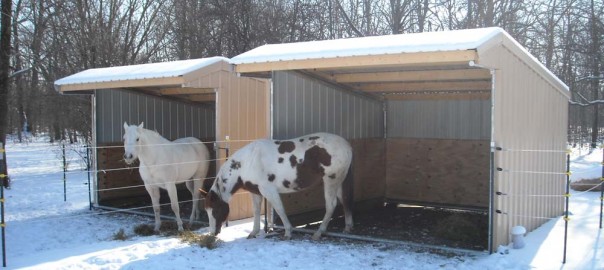As the temperature begins to drop, it’s time to start preparing your horse for the cold and snowy season ahead. Just as we humans bundle up and make adjustments for the colder months, our equine friends require some special care to ensure their comfort and well-being during the winter season. Here are some essential tips to help you get your horse ready for the colder months.
Horse Shelter and Bedding:
One of the most critical aspects of winter preparation is ensuring that your horse has adequate shelter. Whether it’s a well-insulated barn or a three-sided run-in shelter, your horse should have a place to escape the wind, rain, and snow. Provide plenty of clean, dry bedding, such as straw or shavings, to keep your horse warm and dry.
Horse Blanketing:
Horses are generally well-equipped to handle cold weather, but some may benefit from a winter horse blanket. The need for blanketing varies depending on the horse’s age, health, and coat thickness. Generally, very young and very old horses should be blanketed. Healthy adult horses typically are fine with their winter coat that comes in when the days get shorter.
Keeping Your Horse Hydrated:
In winter, it’s crucial to ensure your horse has access to fresh, unfrozen water. Invest in heated water buckets or trough heaters to prevent the water from freezing. Horses can become dehydrated in cold weather, so monitor their water consumption closely. Salt intake is important year-round, but especially in the wintertime. Salt intake during the cold months helps promote water consumption to keep your horse hydrated.
Proper Nutrition for Your Horse:
Horses require extra calories to maintain their body temperature in the cold. Consult with a veterinarian or equine nutritionist to adjust your horse’s diet for the winter months. High-quality hay provides both essential nutrients and generates heat during digestion, helping to keep your horse warm. To decrease food waste, try a hay saver hay feeder.
Exercise for Your Horse:
Keep your horse active during the winter. Riding or turnout time in a safe, dry paddock is essential to maintain their physical and mental well-being. Stagnation in a stall can lead to stiffness and boredom.
With adequate preparation, your horse will transition into winter easily. Use these tips to keep your horse healthy this winter.
